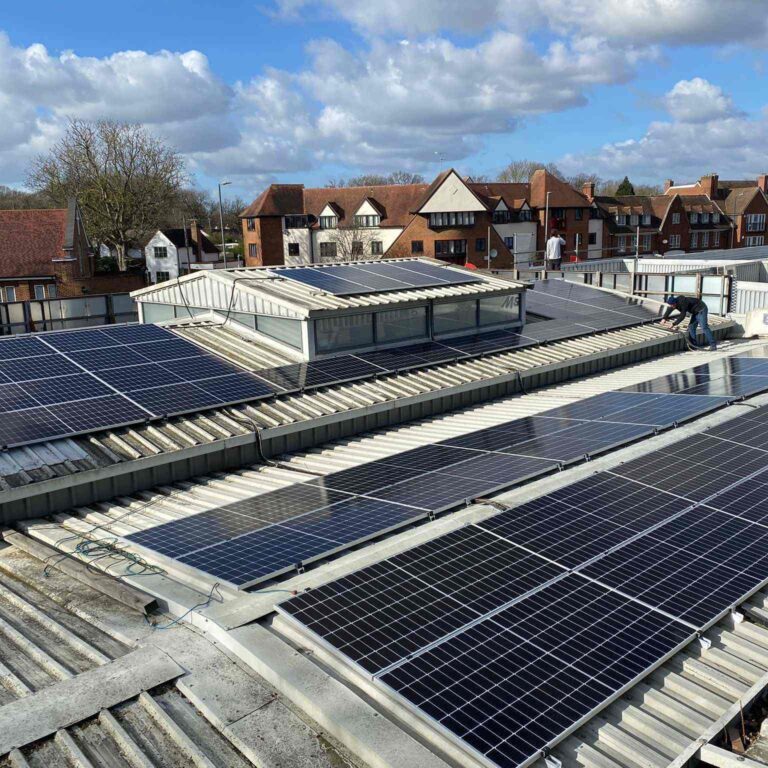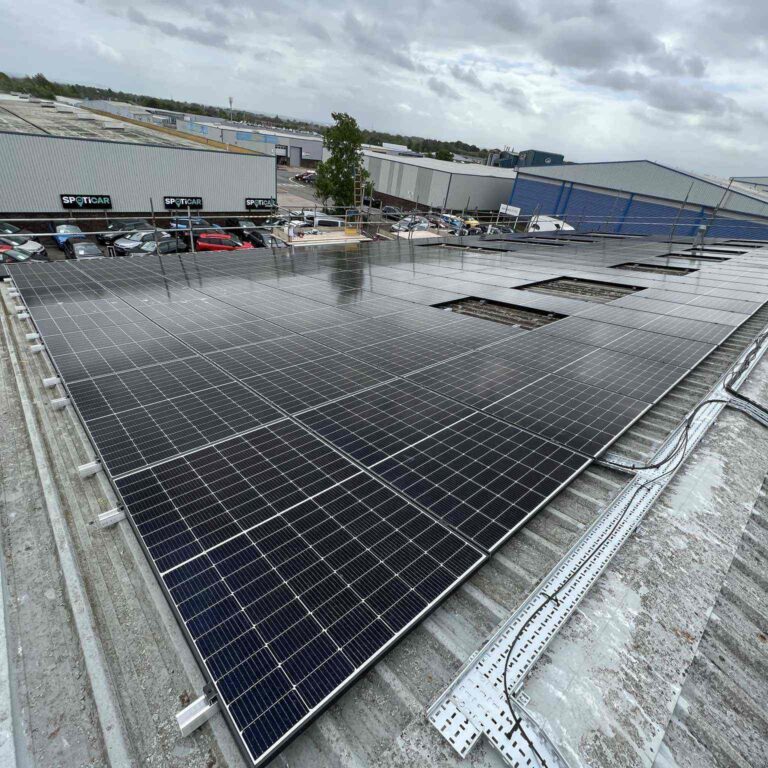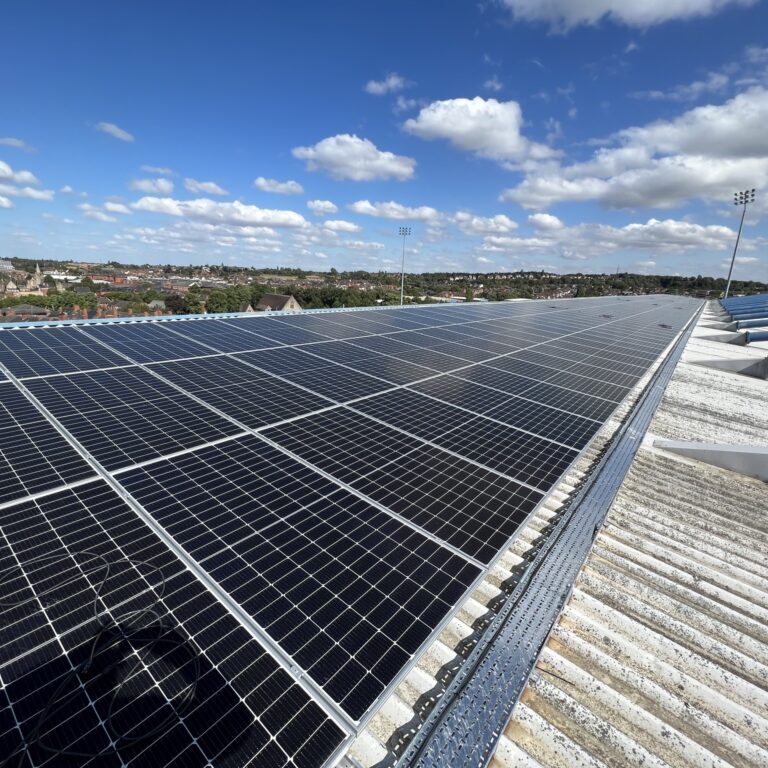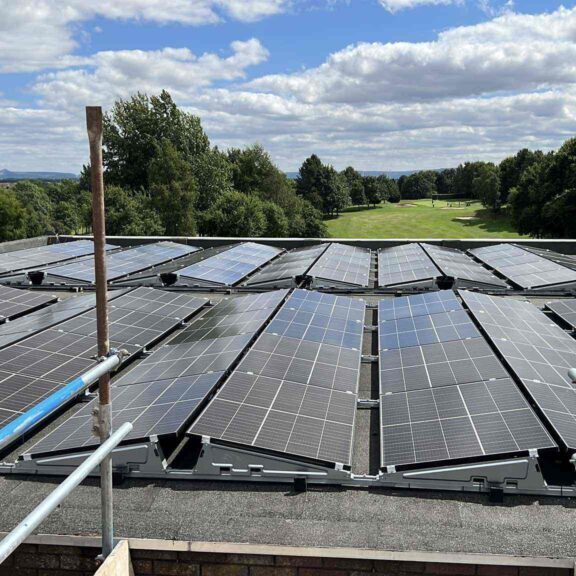In today’s business environment, sustainability has become a key priority for companies across the UK. As businesses face increasing pressure from consumers, investors, and regulatory bodies to reduce their carbon footprint, many are turning to renewable energy solutions. One of the most effective ways to meet these sustainability targets is through commercial solar energy. In this article, we’ll explore how commercial solar can help you achieve your sustainability goals, highlighting its benefits, financial incentives, and long-term impact on your business and the environment.
The Growing Importance of Sustainability
Sustainability is no longer just a buzzword; it’s a fundamental aspect of modern business strategy. UK companies are increasingly expected to demonstrate their commitment to reducing environmental impact. This expectation comes not only from regulatory requirements, such as the UK’s net-zero emissions targets, but also from consumers who prefer to support environmentally responsible businesses.
Incorporating commercial solar into your energy strategy is a powerful way to align your business with these sustainability goals. By transitioning to solar power, your company can significantly reduce its reliance on fossil fuels, lower greenhouse gas emissions, and contribute to a cleaner, more sustainable future.
How Commercial Solar Contributes to Sustainability
Reducing Carbon Emissions
One of the primary ways commercial solar helps businesses achieve sustainability goals is by reducing carbon emissions. Traditional energy sources, such as coal and natural gas, are major contributors to carbon dioxide emissions, which drive climate change. In contrast, commercial solar generates electricity from the sun—a clean, renewable resource with zero emissions during operation.
By installing a commercial solar system, your business can directly decrease its carbon footprint. This reduction in emissions not only supports global efforts to combat climate change but also positions your company as a leader in sustainability. As the UK government continues to tighten regulations around carbon emissions, businesses that have already transitioned to commercial solar will be better equipped to comply with these changes.
Enhancing Energy Efficiency
In addition to reducing carbon emissions, commercial solar can enhance your business’s overall energy efficiency. Solar panels convert sunlight into electricity, which can be used to power your operations, reducing the need to draw energy from the grid. This not only lowers your energy costs but also ensures that your energy consumption is more sustainable.
Moreover, advancements in solar technology, such as energy storage systems, allow businesses to store excess energy generated during the day for use during peak hours or at night. This increases the efficiency of your commercial solar system and further reduces your dependence on non-renewable energy sources.
Supporting Corporate Social Responsibility (CSR)
Implementing commercial solar is a clear demonstration of your company’s commitment to corporate social responsibility (CSR). Consumers and stakeholders are increasingly looking for businesses that prioritize environmental stewardship. By investing in commercial solar, you’re not only meeting sustainability goals but also enhancing your brand’s reputation as a responsible corporate citizen.
This commitment to CSR can lead to a competitive advantage, helping you attract and retain customers who value sustainability. It can also improve employee morale, as staff take pride in working for a company that contributes positively to the environment.
Financial Incentives and Benefits of Commercial Solar
Government Incentives
The UK government offers several financial incentives to encourage businesses to adopt commercial solar. These incentives can significantly offset the initial costs of installation and make the transition to solar power more financially attractive.
One of the key incentives is the Smart Export Guarantee (SEG), which allows businesses to earn money by selling excess solar energy back to the grid. This not only provides an additional revenue stream but also ensures that no energy goes to waste. Additionally, businesses may benefit from reduced business rates for properties with solar panels, further enhancing the financial viability of commercial solar.
Long-Term Cost Savings
While the initial investment in commercial solar may seem significant, the long-term cost savings are substantial. Once installed, solar panels require minimal maintenance and have a lifespan of 25 to 30 years. During this time, your business can enjoy reduced energy bills, as you generate your own electricity rather than relying on the grid.
With energy prices in the UK expected to continue rising, investing in commercial solar provides a hedge against these increases. Over time, the savings on energy costs can more than pay for the initial investment, making commercial solar not only a sustainable choice but also a financially sound one.
The Long-Term Impact of Commercial Solar on Your Business
Future-Proofing Your Operations
As the UK transitions to a low-carbon economy, businesses that rely on traditional energy sources may face increasing challenges. Energy costs are likely to rise, and regulatory pressures will intensify. By adopting commercial solar now, your business can future-proof its operations against these changes.
Investing in commercial solar ensures that your company remains compliant with evolving environmental regulations and reduces the risk of financial penalties associated with non-compliance. It also positions your business as an early adopter of renewable energy, setting you apart from competitors who have yet to make the switch.
Strengthening Stakeholder Relationships
Sustainability is becoming a critical factor in stakeholder decision-making. Investors, customers, and partners are increasingly considering environmental impact when choosing which businesses to support. By implementing commercial solar, you’re not only reducing your carbon footprint but also sending a clear message to stakeholders that your company is committed to sustainability.
This can strengthen relationships with existing stakeholders and attract new ones who prioritize environmental responsibility. In an era where sustainability is increasingly linked to financial performance, commercial solar can help your business build a resilient, future-focused brand.
Contributing to a Sustainable Economy
Finally, by choosing commercial solar, your business is contributing to the broader transition to a sustainable economy. The UK has set ambitious targets for reducing carbon emissions and increasing the use of renewable energy. Businesses play a crucial role in achieving these targets, and commercial solar is one of the most effective ways to contribute.
By generating clean energy and reducing your reliance on fossil fuels, your business is helping to drive the adoption of renewable energy across the country. This not only benefits your company but also supports the UK’s efforts to build a more sustainable, low-carbon economy.
Conclusion
In conclusion, commercial solar offers a powerful solution for UK businesses looking to achieve their sustainability goals. By reducing carbon emissions, enhancing energy efficiency, and supporting corporate social responsibility, commercial solar can help your business meet environmental targets while also delivering significant financial benefits. With government incentives and long-term cost savings, the investment in commercial solar is both a smart business decision and a commitment to a more sustainable future. Whether you’re looking to future-proof your operations, strengthen stakeholder relationships, or contribute to a sustainable economy, commercial solar is the key to achieving your sustainability goals.



